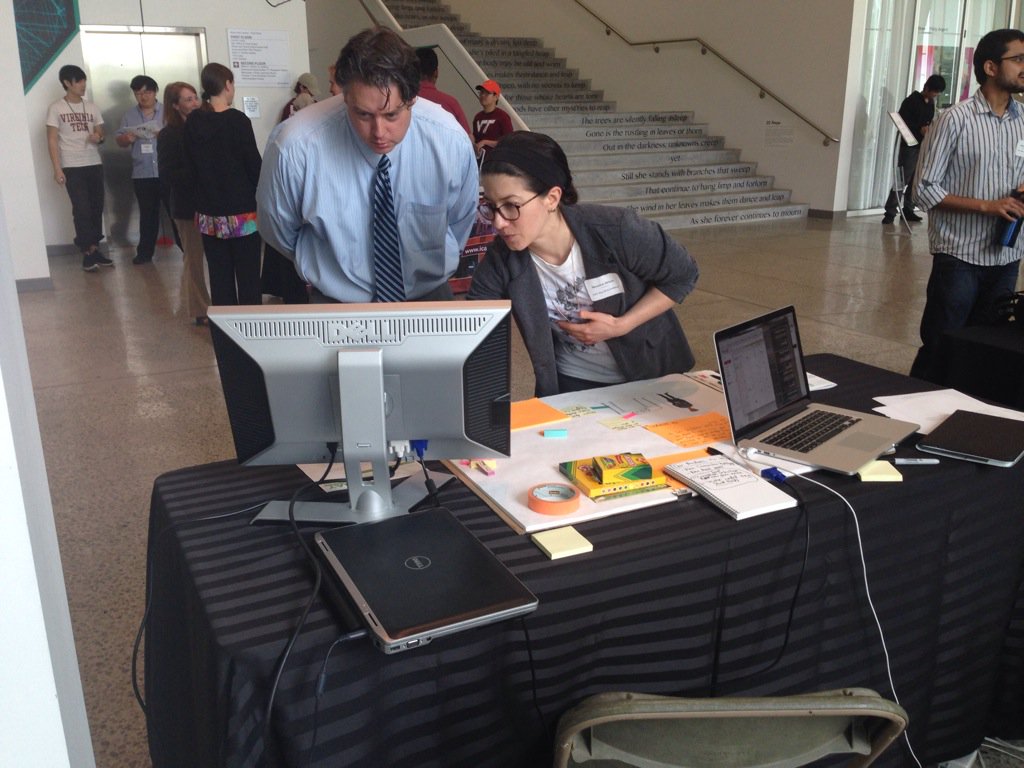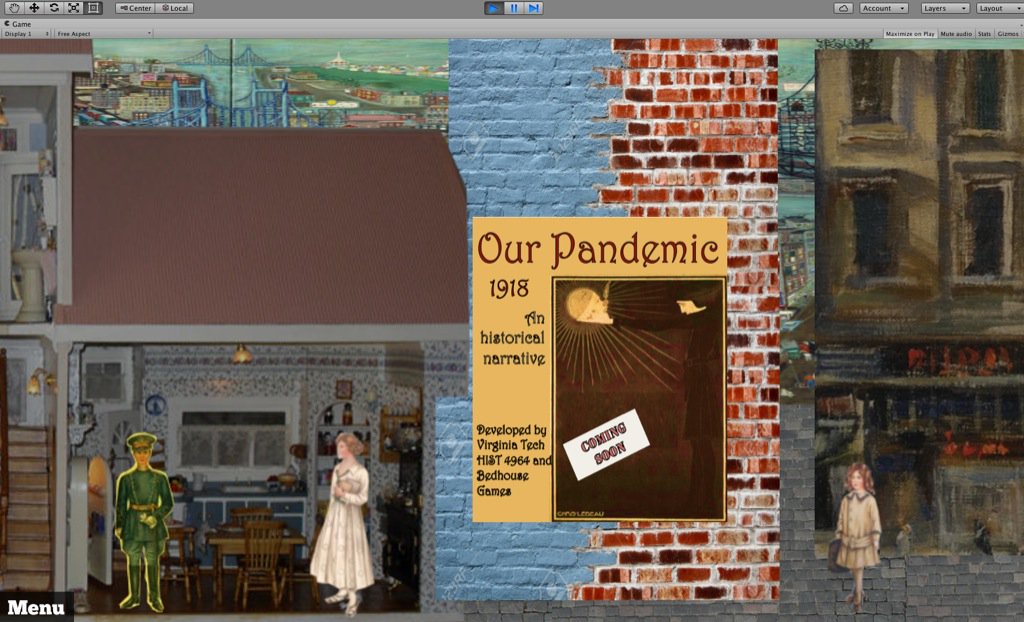On May 2nd Dr. Tom Ewing and I manned our table at Virginia Tech's ICAT Day to showcase our very first demo of Our Pandemic: 1918. The final release date isn't until 2018 but we figured ICAT day would be a good opportunity to gauge audience reaction to the game's concept while it's still in developmental infancy, so we cobbled together the opening scene game jam style and put it out there! The demo was well received and we found and solved a lot of bugs by rapidly prototyping solutions both in Unity and on paper as the day went on.
Thing that struck both Tom and me the most was the fact that the people who really got into the demo were those whose families were directly affected by the 1918 Flu Pandemic. There were about three people who had a great grandparent or great aunt or uncle that died in the pandemic, and one who had an aunt that was a doctor at the time (yes one of the first legit female doctors in the US). I myself had heard stories from my grandmother told to her by her mother, about how one of the families on their block lost ALL of their children during the pandemic (it was a big family, 5 kids in total I believe).
The whole thing reminded me of a conversation I had with Navid Khonsari, the creator of 1979 Revolution: Black Friday, at the Games for Change Summit back in April. He said that one unexpected outcome of the game was how it served as a way for parents and grandparents who had lived through the Iranian revolution to talk to their children and grandchildren about what happened. Side by side. It's sometimes easier to talk about difficult subjects side by side rather than face to face, at least it's easier for me. Using video games to facilitate discussion between players in the same room on potentially tough topics is an angle on gaming that I hadn't really thought about before, as my focus had been on building empathy in solitary players through games but I now see that building empathy and understanding between multiple players is a natural fit. Games like 1979 Revolution: Black Friday as well as That Dragon, Cancer and Loving Life fit into this space and with luck Our Pandemic: 1918 will join their ranks.

